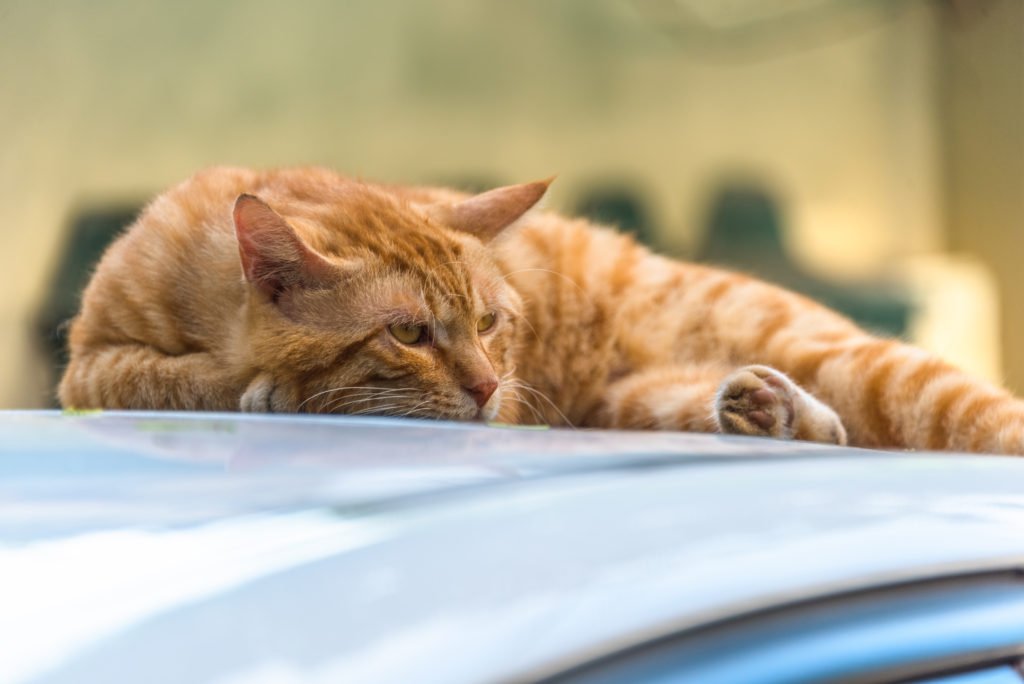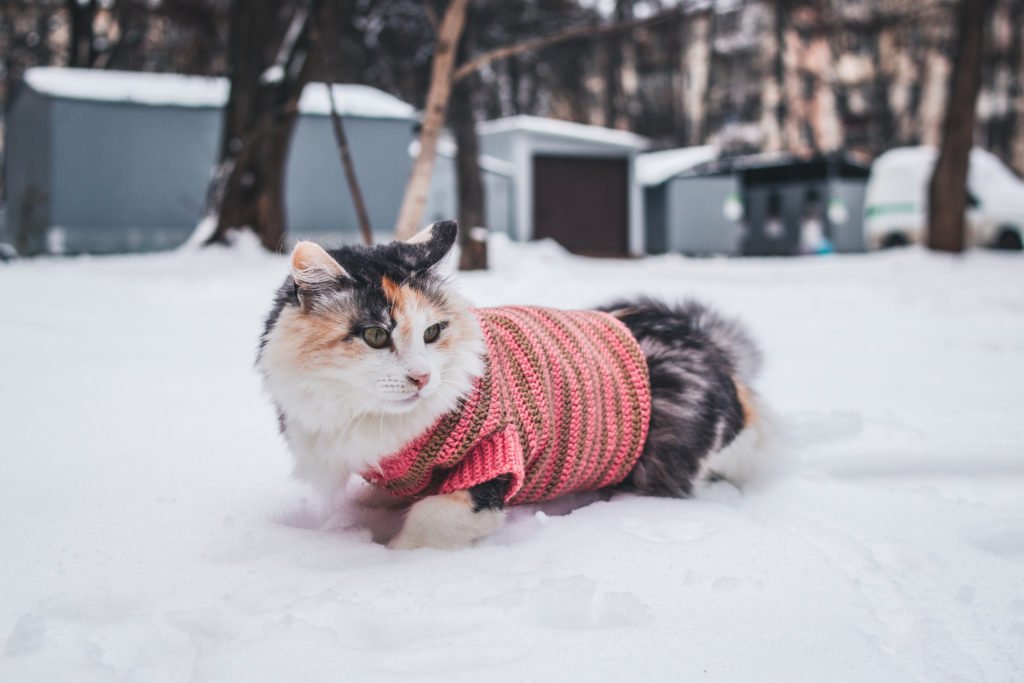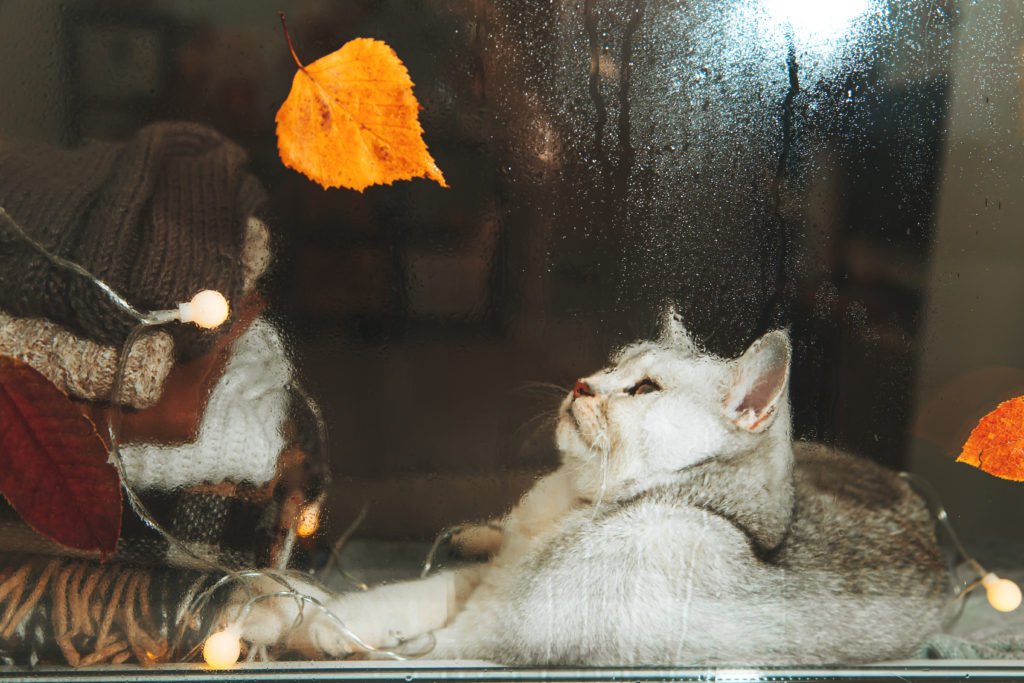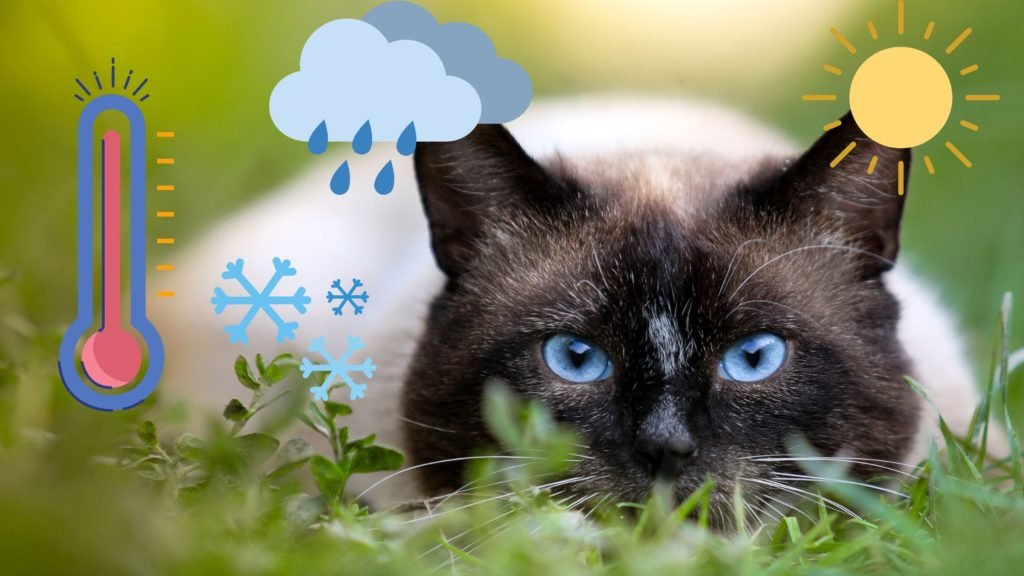Can weather affect cats behavior? Learn how to keep your feline friend comfortable and happy in weather conditions with our helpful tips.
Still, extreme temperatures, precipitation, and other weather conditions can significantly impact their mood, energy levels, and overall behavior. Understanding how weather affects cats is crucial for maintaining them healthy and comfortable.
We’ll discuss how weather affects cats’ behavior and offer advice for keeping them safe and happy no matter the weather.
How Weather Can Influence Cats' Behavior
Cats have a heightened sensitivity to their surroundings and can be influenced by weather shifts. Weather conditions affect cats’ behavior, energy levels, and overall health. For example, hot and humid weather can cause cats to become lazy and less active, while cold weather can make them more playful and energetic. Precipitation, such as rain or snow, can cause cats to become anxious or fearful. As pet owners, we must understand how weather affects our cats and take precautions to keep them comfortable and happy.
Examples of Weather Conditions That May Affect Cats' Behavior
Extreme temperatures are one of the essential weather conditions affecting cats’ behavior. During hot weather, cats may become more lethargic and seek more excellent rest areas. In contrast, cats may become more active and playful during cold weather as they try to stay warm. Precipitation, such as rain or snow, can cause cats to become anxious or frightened. Changes in atmospheric pressure, such as during a storm, can also cause cats to become restless and agitated.
You May Also Interest: Flehmen Response Cat: The Art of Feline Scent Reading
Hot Weather and Cats' Behavior

Hot weather can cause cats to become lethargic, irritable, and dehydrated. It’s essential to keep our cats cool during hot weather by providing plenty of fresh water, keeping them indoors in air-conditioned rooms, and avoiding strenuous activity during the hottest parts of the day.
How Hot Weather Can Affect Cats’ Behavior
During hot weather, cats may become more lethargic and seek more excellent areas to rest. They may also become irritable and show signs of dehydration. Hot weather can cause cats to experience heat exhaustion, which can be life-threatening if left untreated.
Common Symptoms of Heat Exhaustion in Cats
Common symptoms of heat exhaustion in cats include excessive panting, drooling, vomiting, diarrhea, and lethargy. In severe cases, cats may experience seizures or collapse. If you suspect your cat is suffering from heat exhaustion, seek veterinary attention immediately.
Tips for Keeping Cats Cool During Hot Weather
To keep our cats cool during hot weather:
- Provide plenty of fresh, cool water and ensure they have access to shaded areas or air-conditioned rooms.
- Avoid leaving your cat in a car or a hot, enclosed space, as this can quickly lead to heat exhaustion.
- Consider using a cooling mat or providing your cat with a wet towel to lie on. You can also freeze treats or toys to provide your cat with a refreshing and stimulating activity.
You May Also Interest: All You Need To Know: Male Cats vs Female Cats Pros and Cons
Cold Weather and Cats' Behavior

Extreme cold can still cause cats to become uncomfortable or even sick. Temperature changes can affect cats’ moods, energy levels, and overall behavior. In this section, we will explore how cold weather can impact cats and what steps we can take to help them stay comfortable and healthy.
How Cold Weather Can Affect Cats’ Behavior
Cats may become more sedentary during cold weather and prefer to rest in warm, cozy areas. They may also become more irritable or aggressive. Cold weather can also impact their appetite and digestion, decreasing food intake and constipation.
The Risks of Hypothermia and Frostbite in Cats
Hypothermia and frostbite are two common risks associated with cold weather. Hypothermia occurs when a cat’s body temperature drops below normal, leading to lethargy, shivering, and difficulty breathing. Frostbite occurs when the skin and tissue freeze, leading to discoloration, swelling, and pain. These conditions can be life-threatening if left untreated.
Tips for Keeping Cats Warm During Cold Weather
To keep our cats warm during cold weather, we can provide them with a warm and cozy bed in a heated room, keep them indoors, and provide them with warm blankets or clothing if needed. We can also ensure they can access plenty of fresh water and food and maintain a consistent feeding schedule. Additionally, we can provide our cats with stimulating indoor activities, such as playing with toys or spending time with us, to help them stay active and engaged.
You May Also Interest: Why Your Cat is Getting Hairballs and How to Prevent Them
Rainy Weather and Cats' Behavior

Rainy weather can cause cats to become anxious or even frightened. In this section, we will explore how rainy weather can impact cats and what steps we can take to help them stay calm and comfortable.
How Rainy Weather Can Affect Cats’ Behavior
During rainy weather, cats may become more anxious or fearful. Loud thunderstorms or lightning can be terrifying for cats, who may seek shelter or hide in small spaces. Rainy weather can also impact their mood and appetite, decreasing their activity and food intake.
How Cats May React to Rain and Thunderstorms
Cats may react to rain and thunderstorms in various ways. They may become more vocal, meowing or crying for attention or comfort. They may also become more agitated or restless, pacing or hiding in small spaces. Some cats may even display destructive behavior, such as scratching or biting.
Tips for Keeping Cats Calm During Storms
To help our cats stay calm during storms, we can create a safe and secure indoor space away from windows and doors. We can also provide them with comforting toys, such as a soft blanket or a toy with catnip. Additionally, keeping them occupied with indoor activities, such as playing with toys or spending time with us, can help reduce their anxiety. We can also speak to our veterinarian about medication or other treatment options for severe anxiety if necessary.

